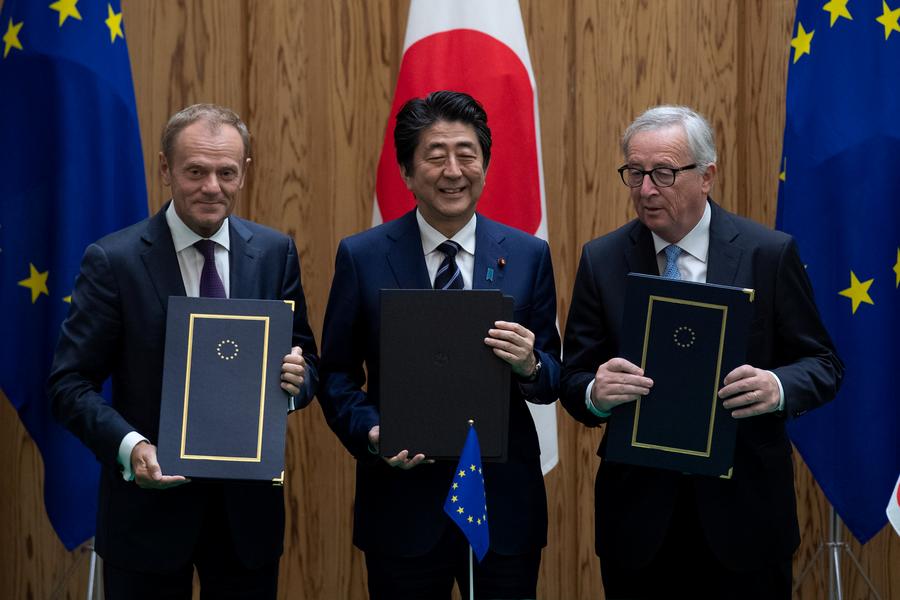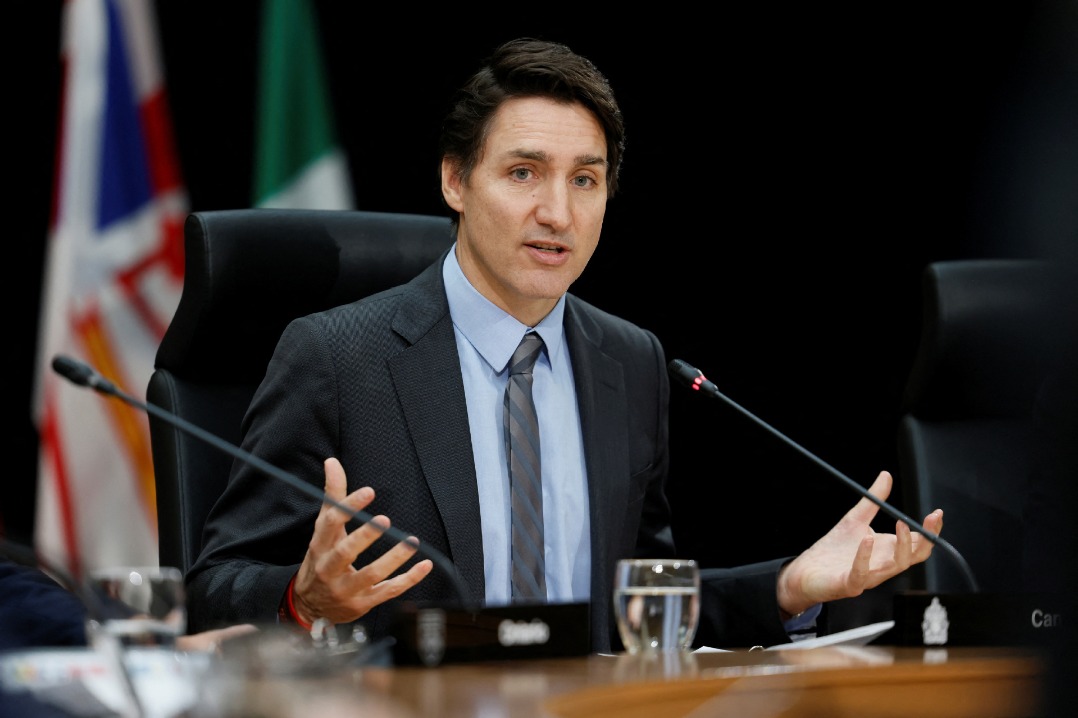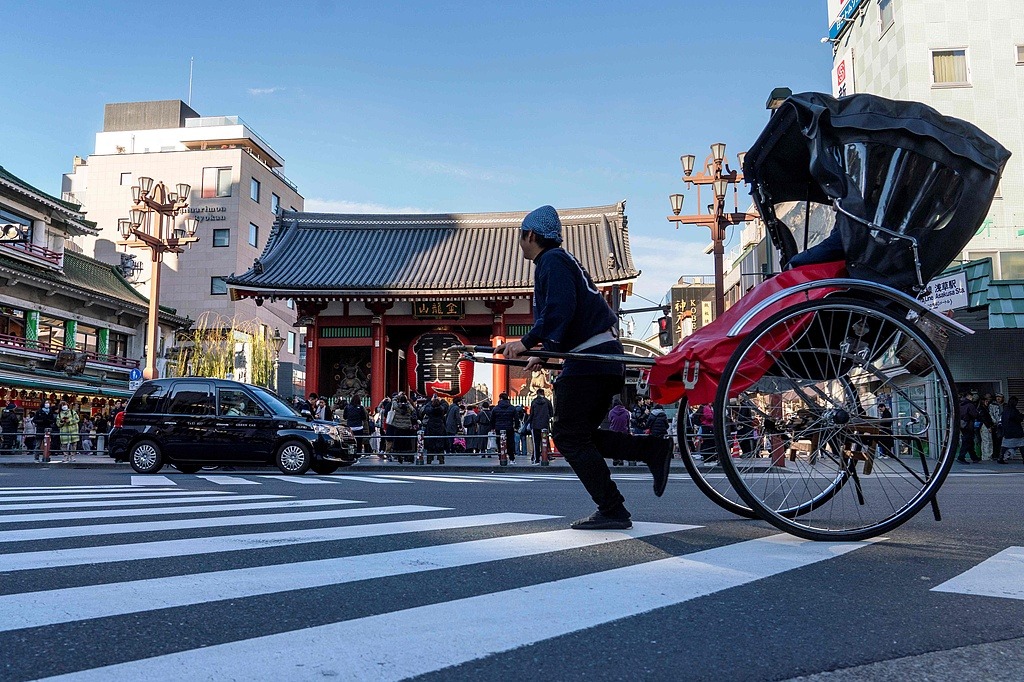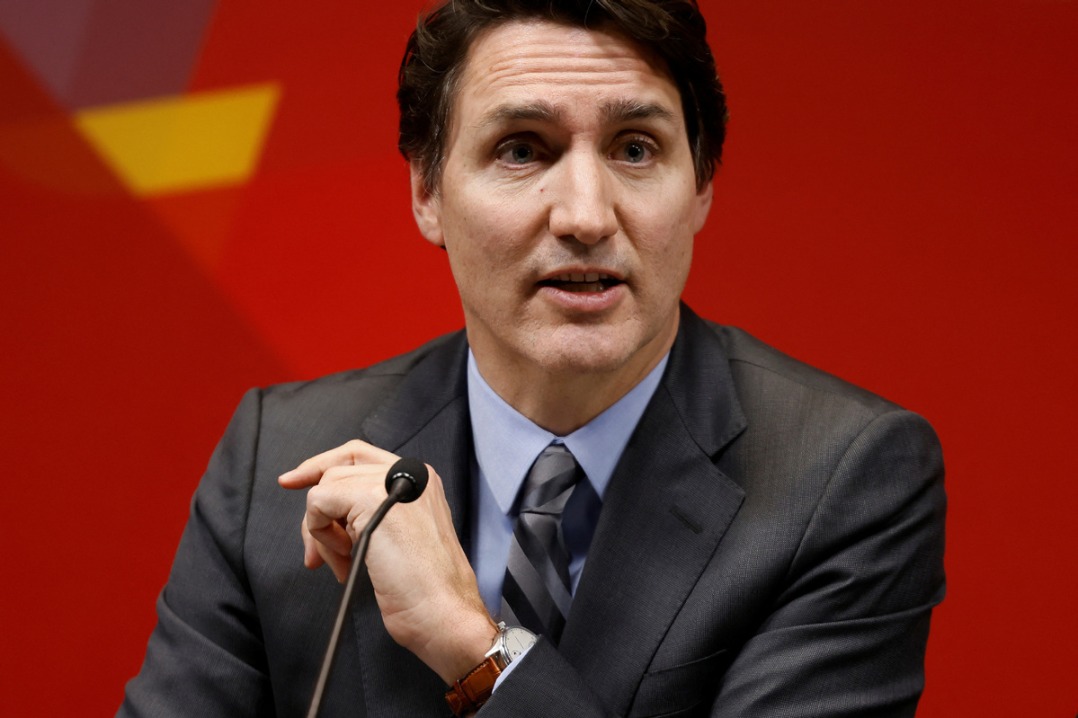Europe, Japan sign massive free trade deal

Pact will cover 30% of world's GDP and 40% of global trade

Amid trade tensions set off by US President Donald Trump, Japan and the European Union on Tuesday signed a widespread trade deal that will eliminate nearly all tariffs.
At a joint news conference, Japanese Prime Minister Shinzo Abe said the Economic Partnership Agreement, which covers 30 percent of the world's gross domestic product and 40 percent of global trade, will create the world's largest free trade zone.
The deal will eliminate about 99 percent of the tariffs on Japanese goods to the EU. As for European imports into Japan, about 94 percent of duties will be removed now and 99 percent in coming years.
European Council President Donald Tusk and European Commission President Jean-Claude Juncker were in Tokyo to sign the agreement, which was delayed earlier this month as Japanese Prime Minister Shinzo Abe canceled his visit to Brussels over the disaster caused by heavy rain in southwestern Japan.
By strengthening ties with the EU, Japan hopes to revitalize mutual direct investment, fight other global trends toward protectionism and enhance the stature of Japanese brands, Japan's Foreign Ministry said in a statement.
"We are sending a clear message that we stand together against protectionism. The European Union and Japan remain open for cooperation," Tusk said.
Tokyo expects that the deal will push up the country's GDP by about 1 percent and create nearly 290,000 jobs.
Jiang Ruiping, vice-president of China Foreign Affairs University and an expert on the Japanese economy, said the deal met both EU and Japan's expectation as the EU is now seeking access to more markets after Brexit while Japan hopes to jump-start its economy that has struggled to find solid growth.
Jiang said as the US has withdrawn from the TPP (Trans-Pacific Partnership) and started a massive trade war against main world economies, achieving progress in the Japan-Europe economic partnership has undoubtedly brought a vivid momentum to the global economic and trade environment overwhelmed by trade war fears.
However, he added, to believe that the signing of the agreement will fundamentally resist or even completely eliminate the huge impact of the trade war on the global economy was unrealistic.
Take a relief
The deal with the EU is part of the Abe administration's strategy to gain relief from its domestic economic pressure of a shrinking population and political scandals, Jiang said, adding that Abe considered it an important part of his "Abenomics" plan as Japan's growth is heavily dependent on exports.
The EU and Japan are aiming for the agreement to come into effect before March 2019. They have set up a high-level industrial, trade and economic dialogue and decided to hold the first meeting by the end of this year.
In a show of their closer relations, the two sides also signed a strategic partnership agreement on Tuesday.
The EU-Japan trade deal came when the United States is escalating trade tensions. The US imposed new tariffs on steel and aluminum imports in March and brought in 25 percent tariffs on $34 billion of Chinese goods early this month. Now Washington is proposing 10 percent tariffs on a $200 billion list of Chinese goods. Beijing has responded by imposing identical penalties on a similar amount of US imports.
Also, the US Department of Commerce launched an investigation in May into whether imported auto and parts pose a national security threat. Trump has repeatedly threatened to impose a 20 or 25 percent import tariff on vehicles and parts. Commerce Secretary Wilbur Ross said in June he aimed to wrap up the probe by late July or August.
The Trump administration wants to negotiate bilateral trade agreements with US trading partners rather than multilateral deals.
Japan and the US are expected to start their trade talks later this month, in light of Trump's declaration of intent to correct the trade imbalance at a joint news conference with Abe in Washington on June 7.
Contact the writers at caihong@chinadaily.com.cn































